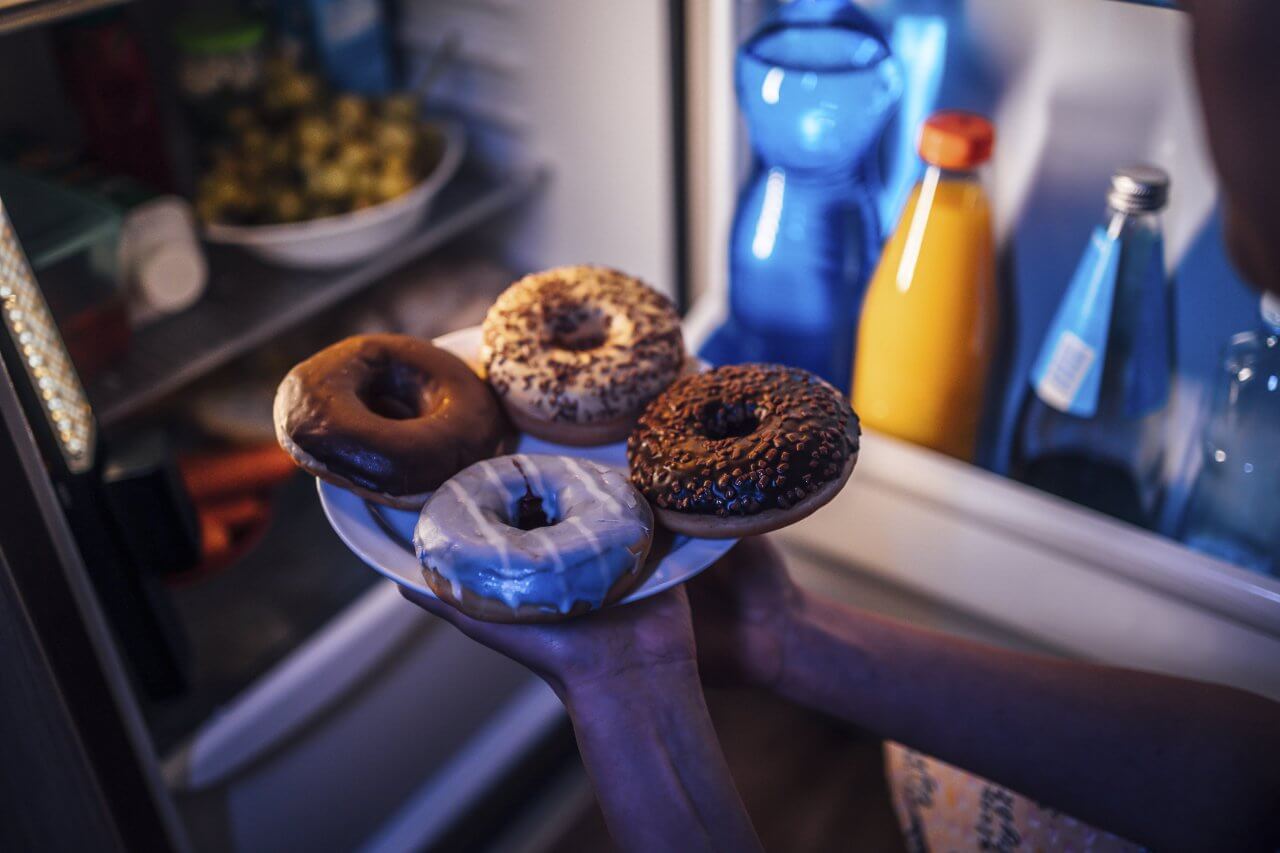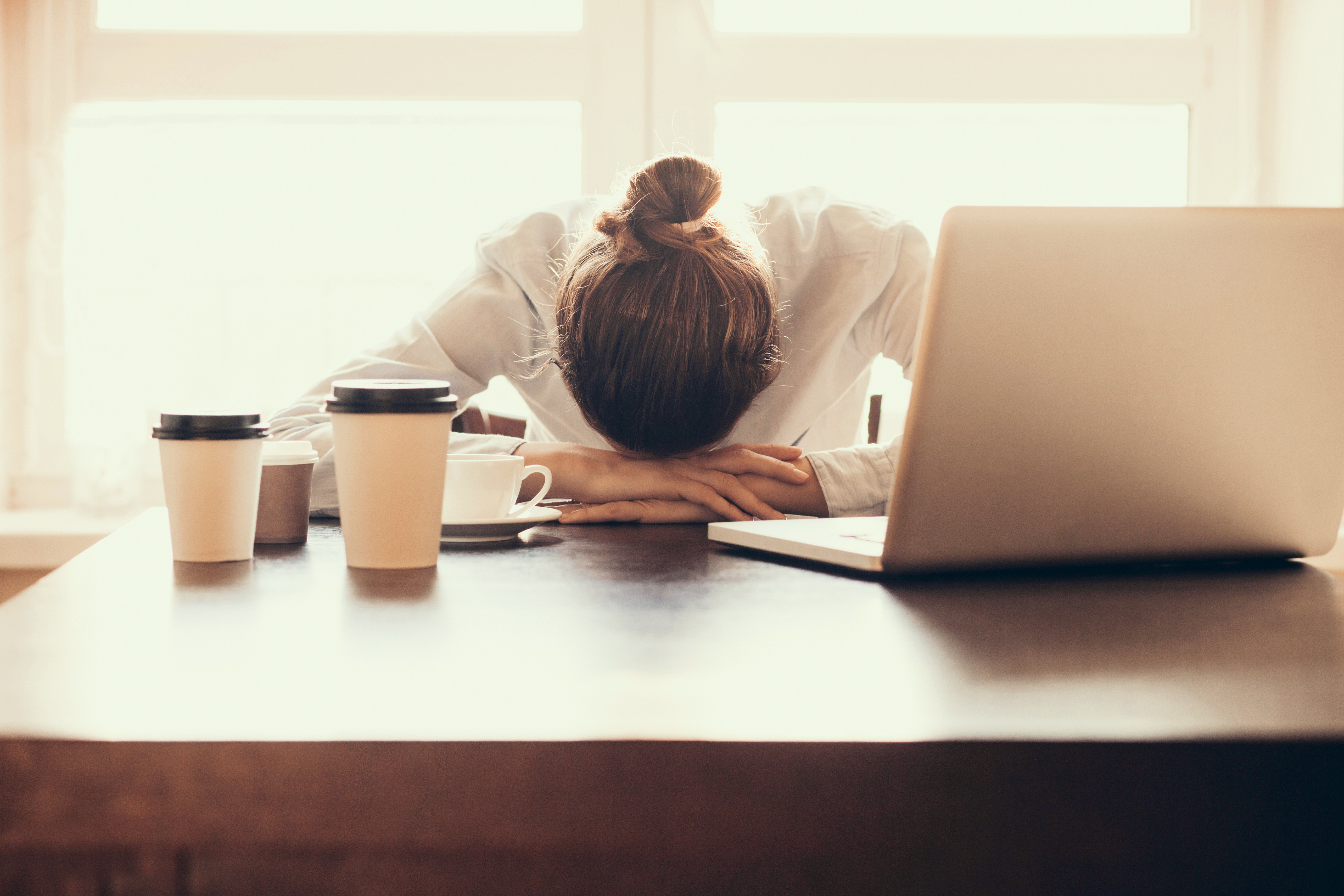8 Tips for Sleeping Better

Getting enough sleep isn’t a luxury — it’s essential for good health. Unfortunately, many people struggle to fall asleep or stay asleep through the night.
The good news is that there are actions you can take today to improve the quantity and quality of your sleep. The first is to consider the things that might be keeping you awake.
Bad Habits That are Ruining Your Sleep
Are you a tosser and a turner? A stare-at-the-ceiling fretter? If you’re having trouble getting quality sleep, one of the following might be the culprit.
You lie in bed looking at your phone.
Sleep experts say, “Thou shalt not scroll through Facebook in bed.” But it’s so tempting to see what’s happening at that moment.
Keeping electronics in the bedroom is bad for three reasons. One, they emit light that tells our brains it’s time to stay awake. Two, staring at our devices keeps us from interacting with our bed partners, whether that means conversation, cuddles, or intimacy. Three, notifications from our phones, whether they’re news alerts or rants from a friend, can stress us out.
You like to pour a nightcap or light up a cigarette.
Yes, alcohol might help you fall asleep faster, but studies show that consuming it before bed leads to less REM sleep (the stage in which we consolidate learning and memories) and more overnight awakenings.
The nicotine that makes cigarettes so deadly in the long run also robs you of sleep. It’s a stimulant that keeps you awake.
You can only find time to work out at night.
Working out is good for you. However, it can increase your alertness. If you exercise at night, it may affect your sleep.
You eat heavy dinners.
Yes, a pulled pork sandwich with a side of homemade mac and cheese is delicious, but it might also give you indigestion and heartburn. That’s because rich, fatty foods can trigger acid reflux. It’s miserable, especially in the middle of the night when you want to be snoozing.
Your weekend and weekday sleep schedules are different.
Part of the fun of the weekend is staying up a little later and sleeping in a little more. But having a regular sleep schedule, when you go to bed and wake up at about the same time, is best for your body’s internal clock.
If your body knows when to wake up and when to sleep, you will feel more alert during the day and sleepy when it’s time for bed.
You’re a clock watcher.
We’ve all been there. You wake up in the middle of the night and look at the alarm clock. It’s 3:45 a.m., and your mind starts racing.
“The alarm will go off in two hours. I have to get more sleep, or I’ll be a wreck at work.” Then you’re too stressed to sleep.
Your bedroom isn’t optimized for sleep.
The condition of your bedroom directly affects your sleep. If yours is noisy, too hot or cold, or not dark enough, you may struggle to fall asleep or stay asleep.
If any of the characteristics above describe you, it’s vital to address them.
Take These 8 Actions Today to Sleep Better Tonight
To promote a good night’s sleep, do the following:
- Avoid screens at least one hour before going to bed. Using devices isn’t just distracting you from winding down. It can actually affect your body chemistry — see below. Turning off your devices helps get your body into sleep mode.
- Avoid alcohol and smoking a few hours before bedtime. The more time you give your body to process these substances, the less negative impact they’ll have on your sleep. It’s also a good idea to drink less water in the evening to reduce the need for overnight trips to the bathroom.
- Exercise during the day. Completing workouts in the morning or afternoon is ideal since it allows you to relax and unwind before hitting the sack.
- Eat lighter dinners. Consuming smaller, less-rich meals helps prevent overnight digestive issues.
- Use the same sleep/wake schedule all week. Sleeping in on the weekends may feel good, but it adversely affects your sleep rhythm. Sticking to the same routine Monday through Sunday is best.
- Avoid checking your clock at night. Set the alarm for the morning and turn your clock away from your bed. Not seeing it helps lower your stress about how long you have until morning.
- Optimize your bedroom for sleep. Creating the right conditions for a restful night is crucial. Ensure your sleeping space is dark, quiet, and comfortably cool (around 65 degrees Fahrenheit is ideal). You should also have a comfortable bed and bedding that doesn’t make you too warm.
- Create a wind-down ritual. Activities like praying, meditating, or journaling can help you release stress. And doing the same thing every night helps train your body that it’s time to sleep.
Nighttime Technology Use Is Especially Bad for Sleep
Using electronic devices (phones, tablets, computers, etc.) at night is one of the most significant causes of sleep problems today. According to the National Sleep Foundation, 95% of Americans regularly use a computer or other electronic device in the hour before bed.
Exposure to the light from these devices can significantly lower levels of the hormone melatonin, which regulates your internal clock and plays a role in your sleep cycle. Avoiding screens for an hour or more before bedtime is an easy way to improve sleep.
Get Help with Sleep Issues from Baptist Health
If consistently practicing good sleep hygiene doesn’t help you get the rest you need, you should talk with your doctor or one of our experts at the Sleep Center. They can assess your physical condition to determine if a health issue is affecting your sleep.
Better sleep is achievable, and we can help.
Next Steps and Useful Resources
Why Is Sleep Hygiene Important?
6 Bedtime Snacks for Sleep
How Does Nutrition Affect Sleep?



